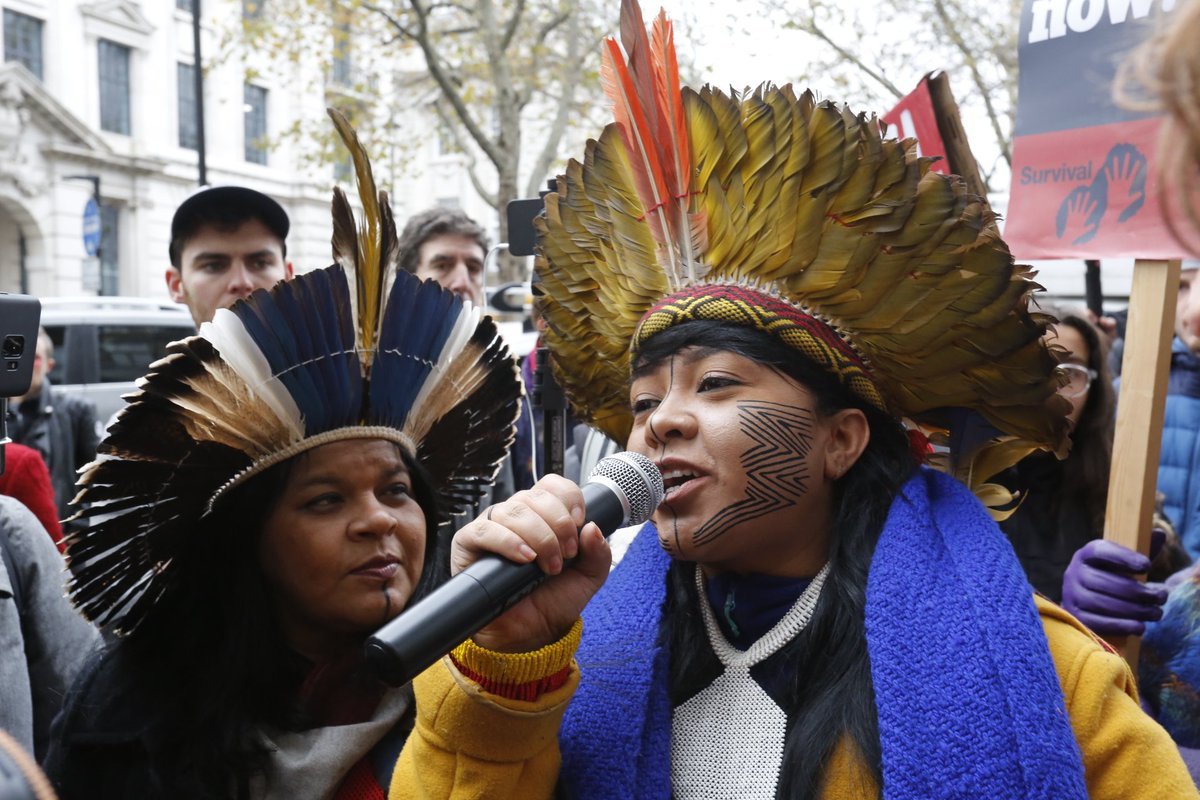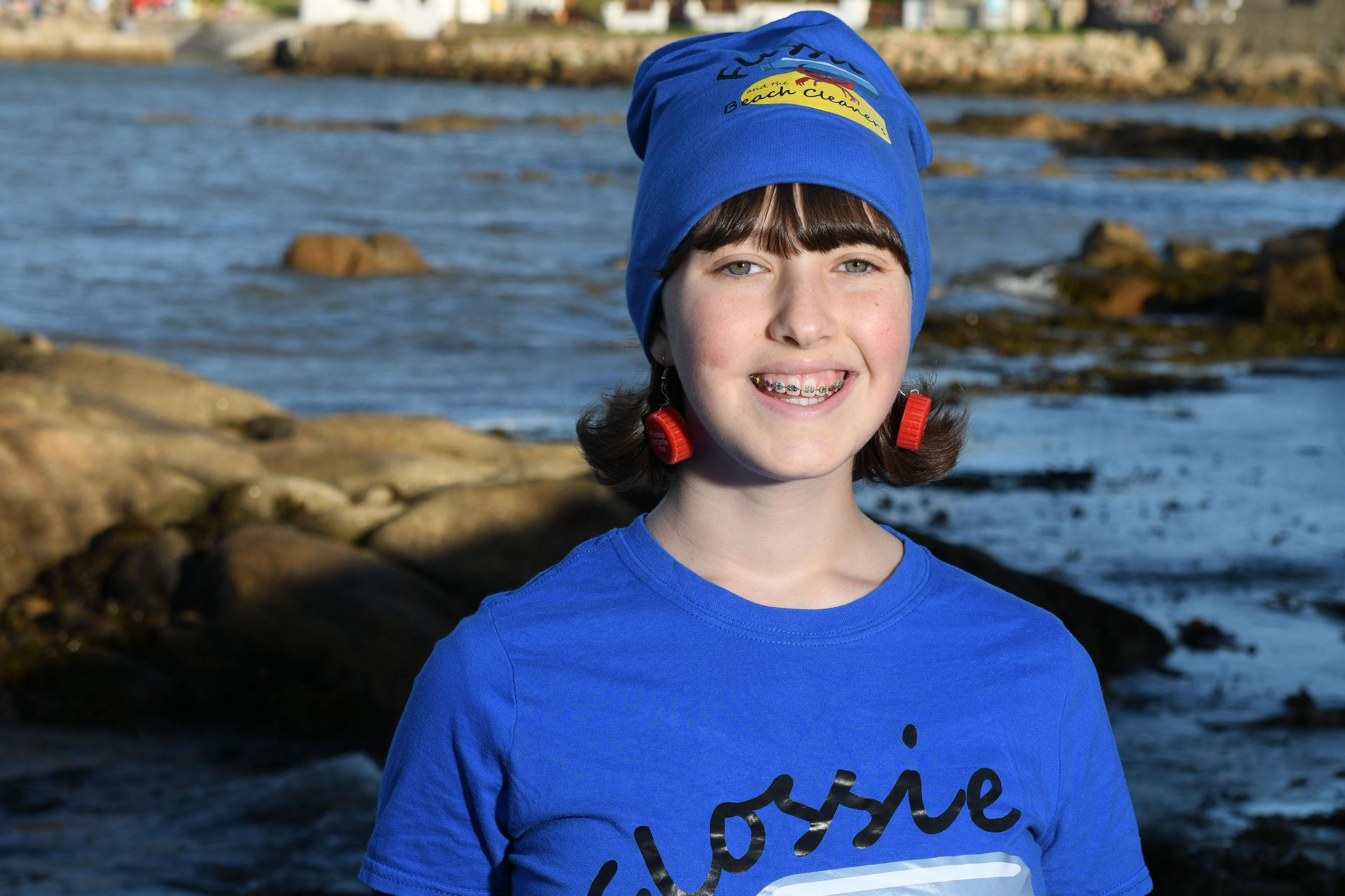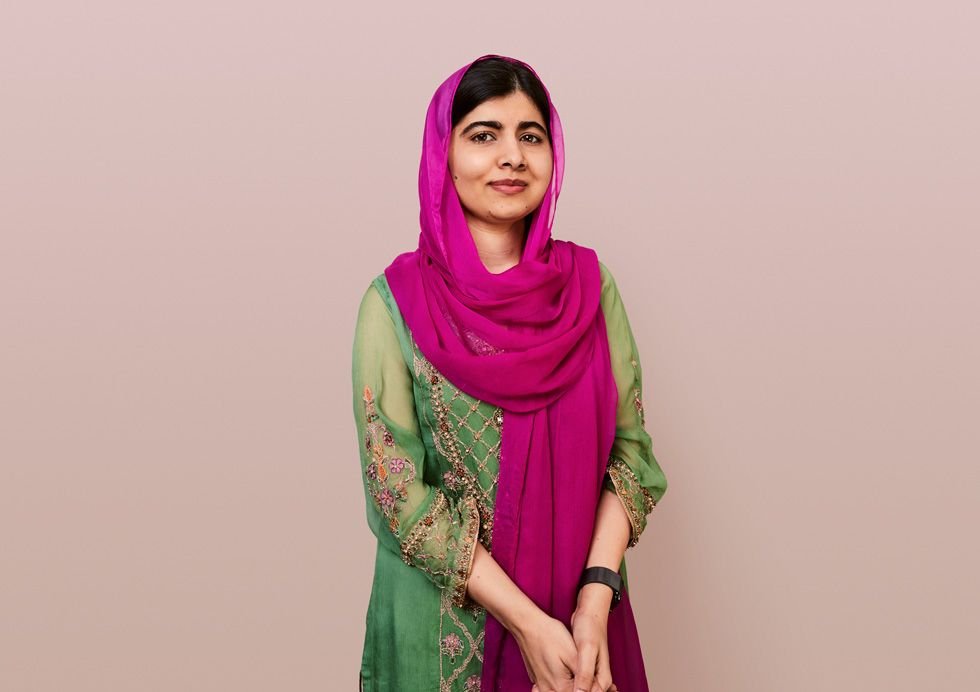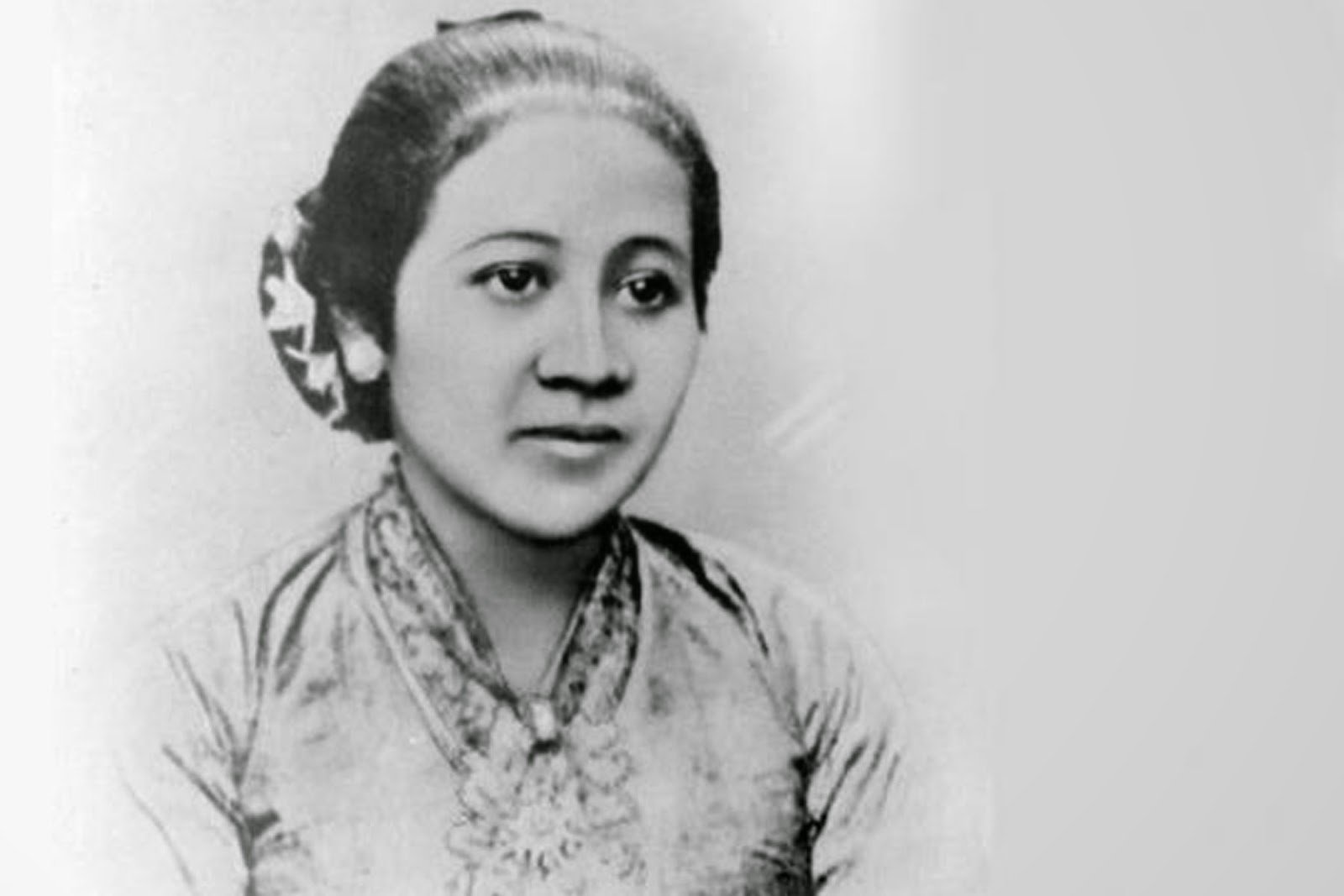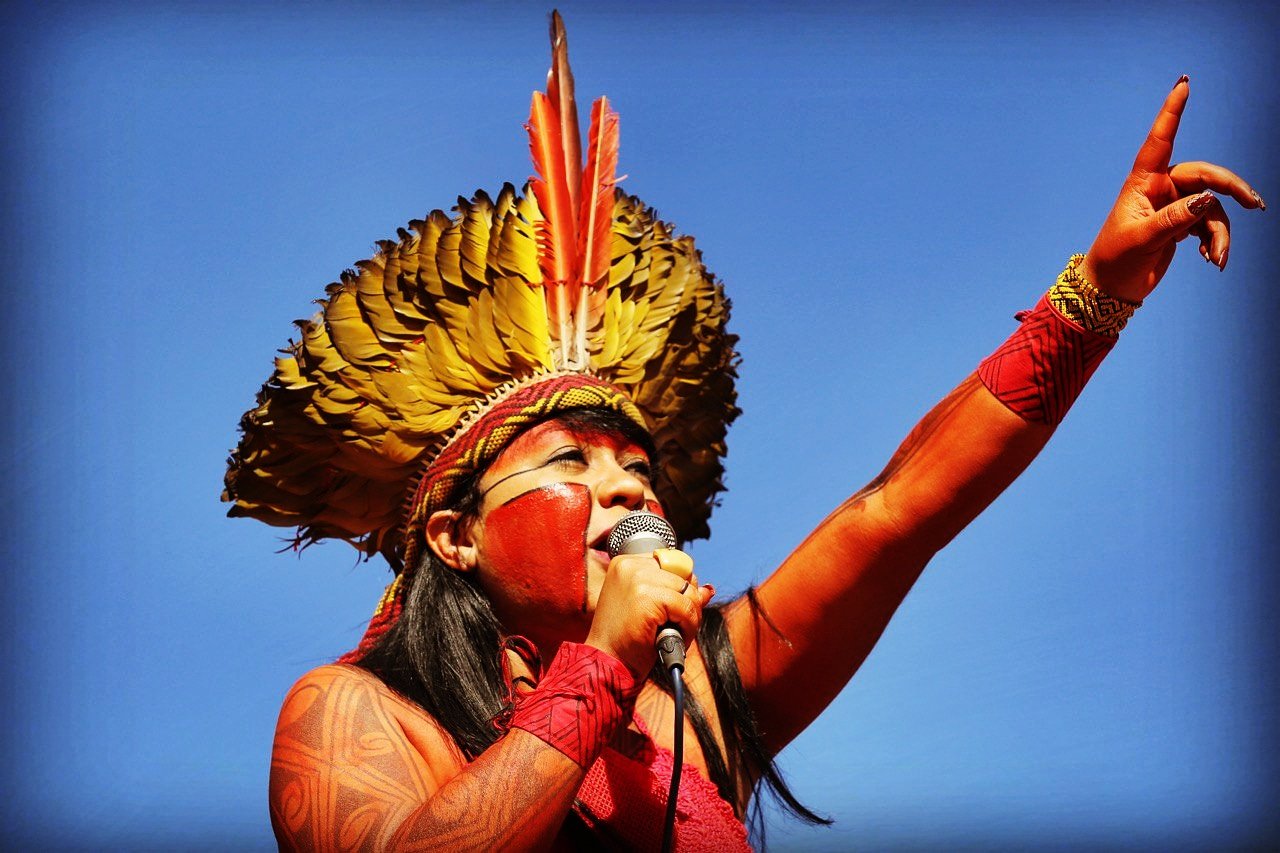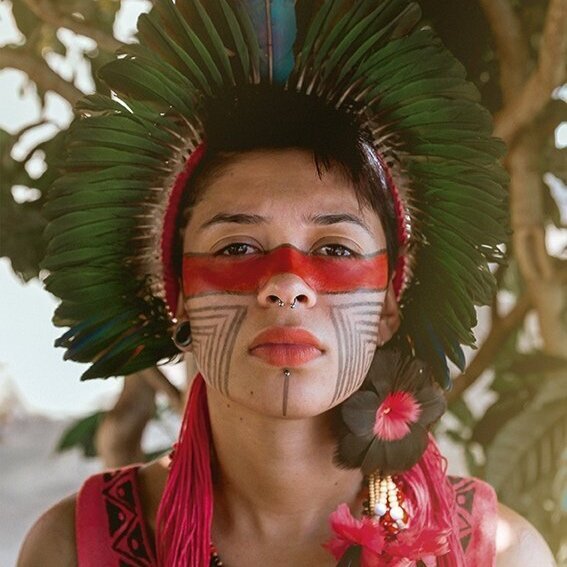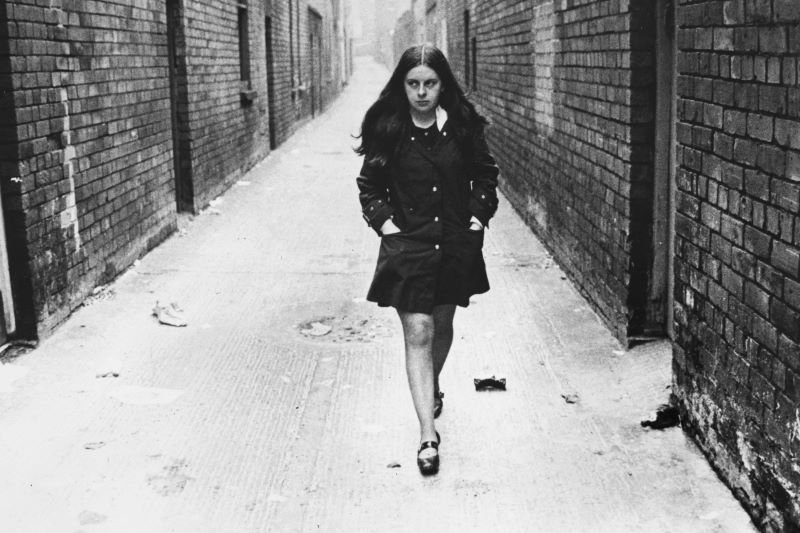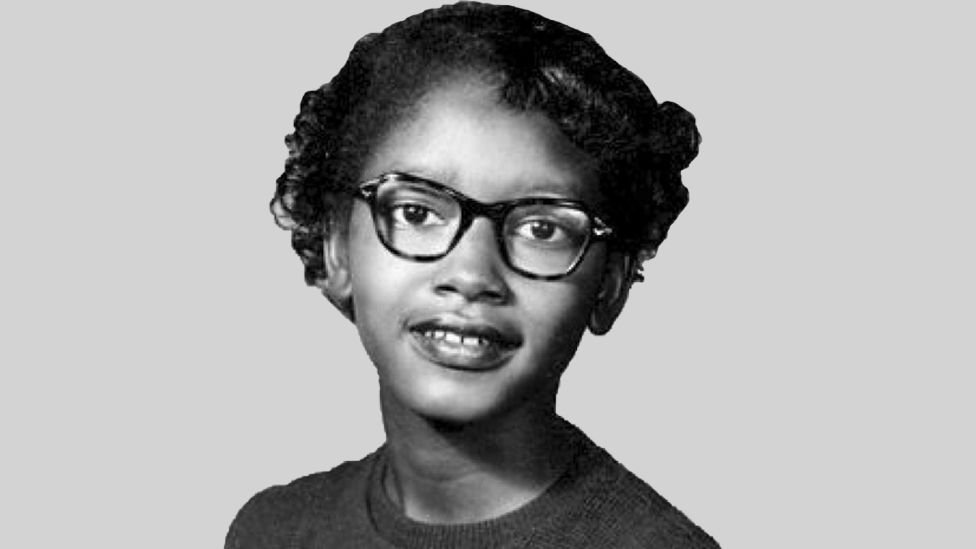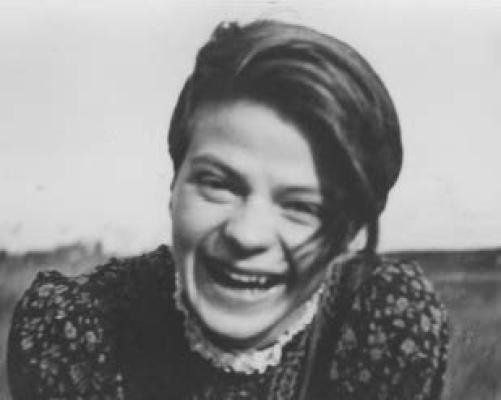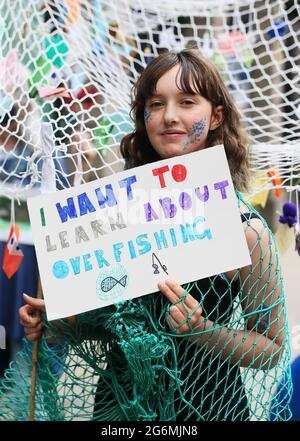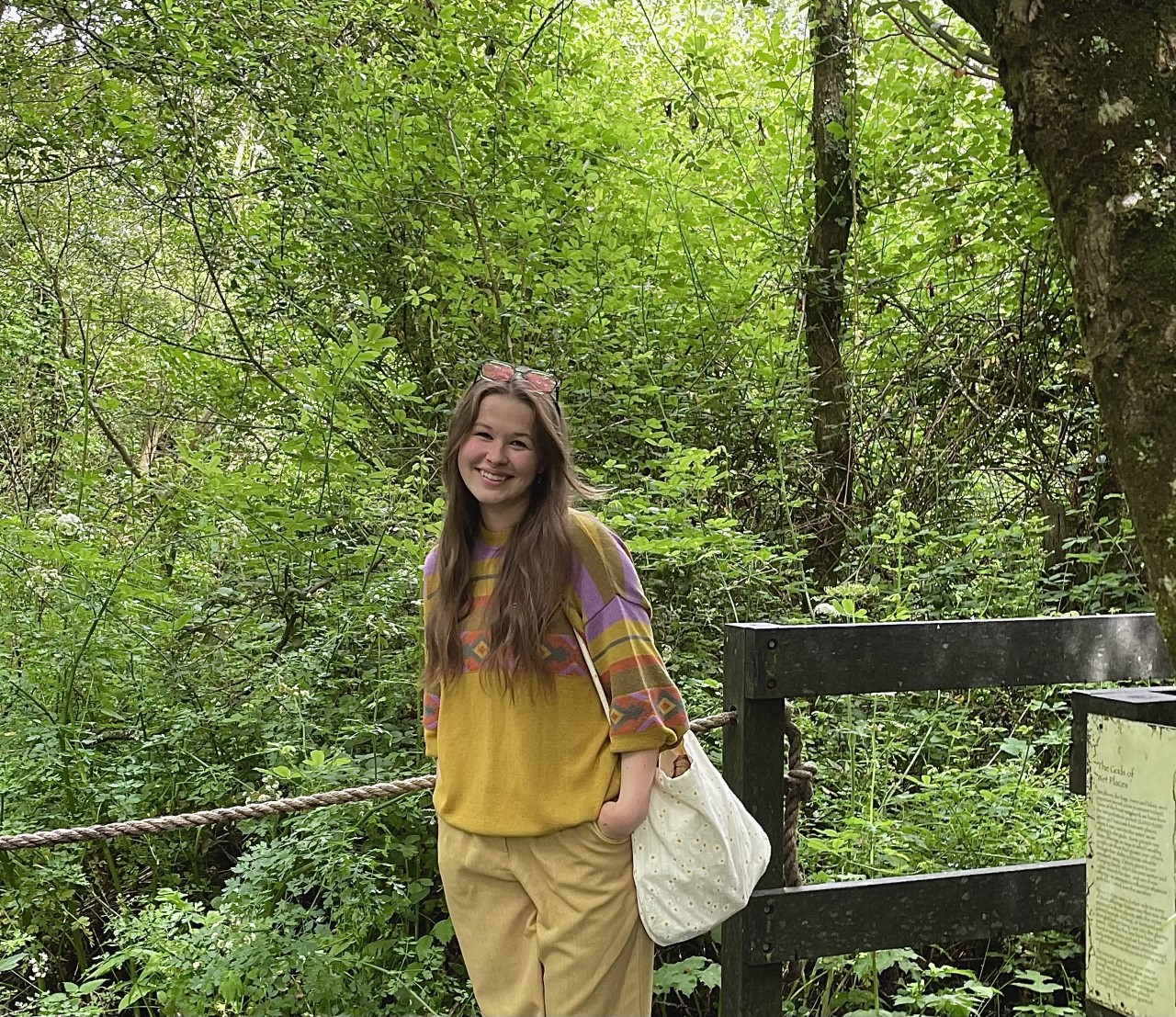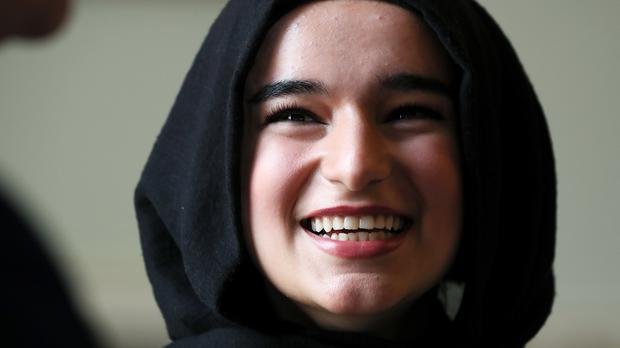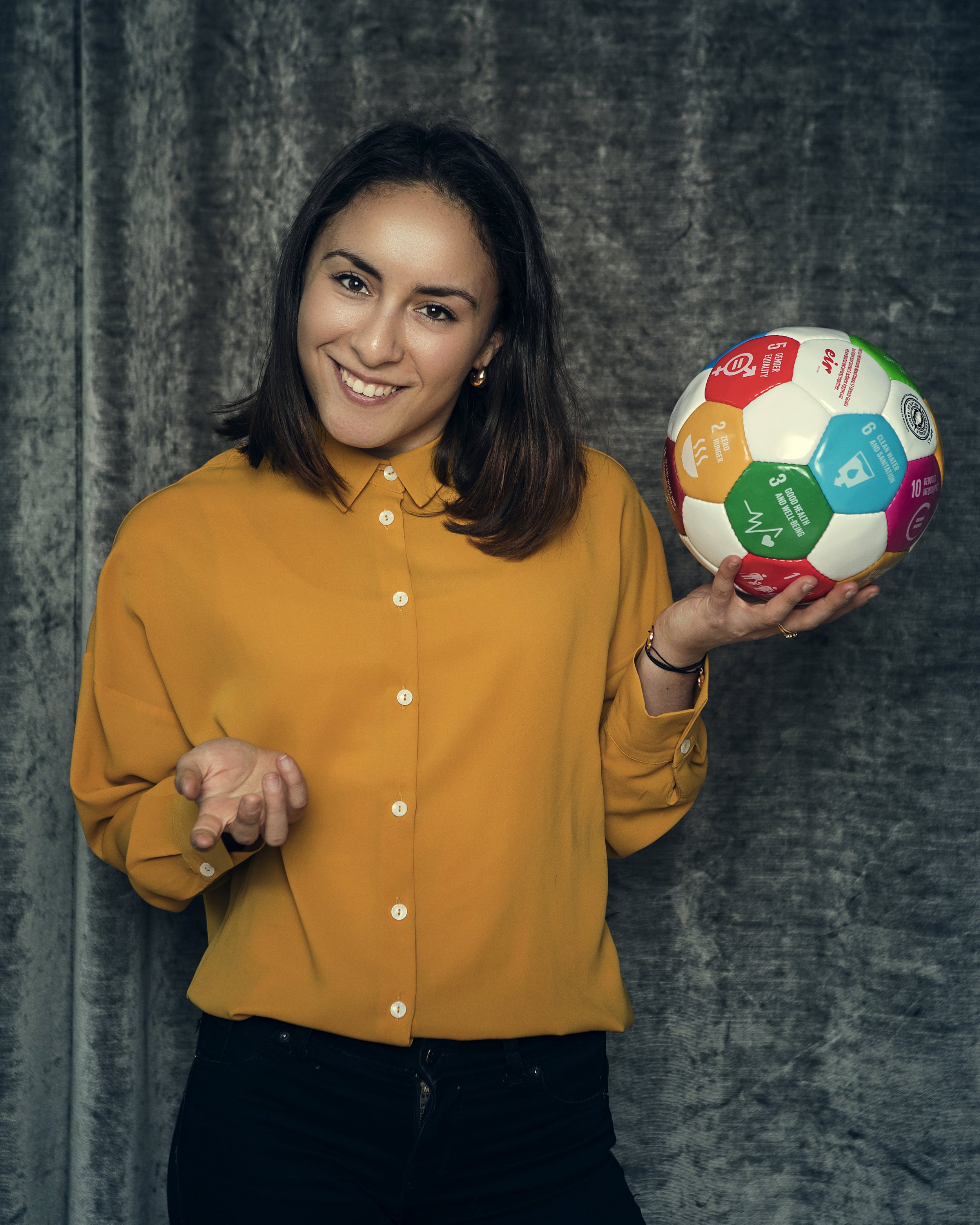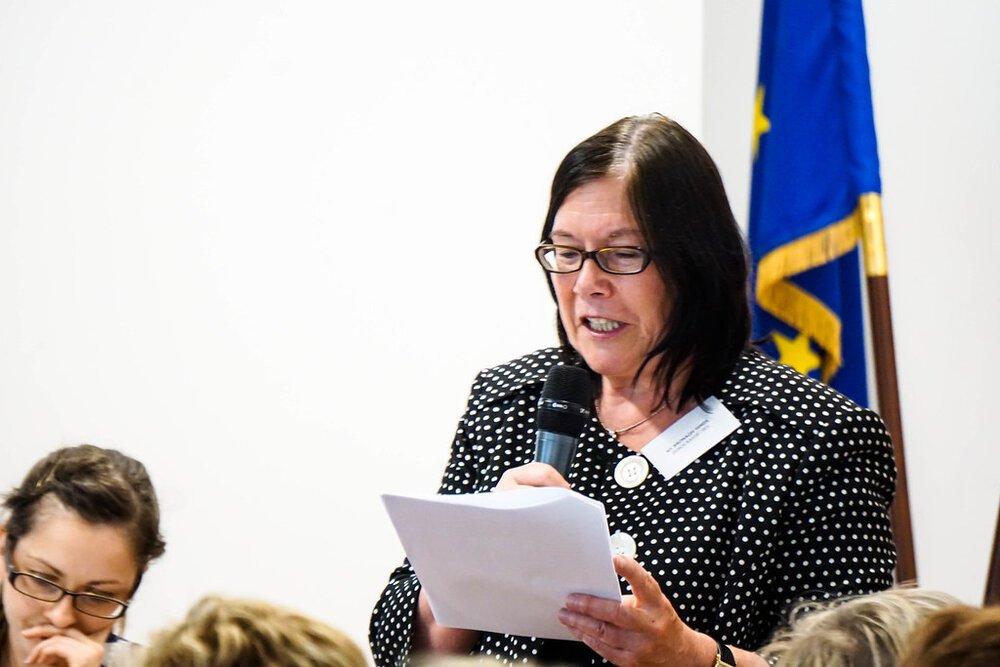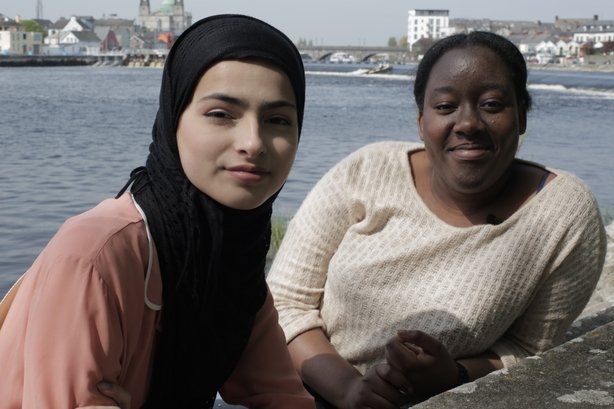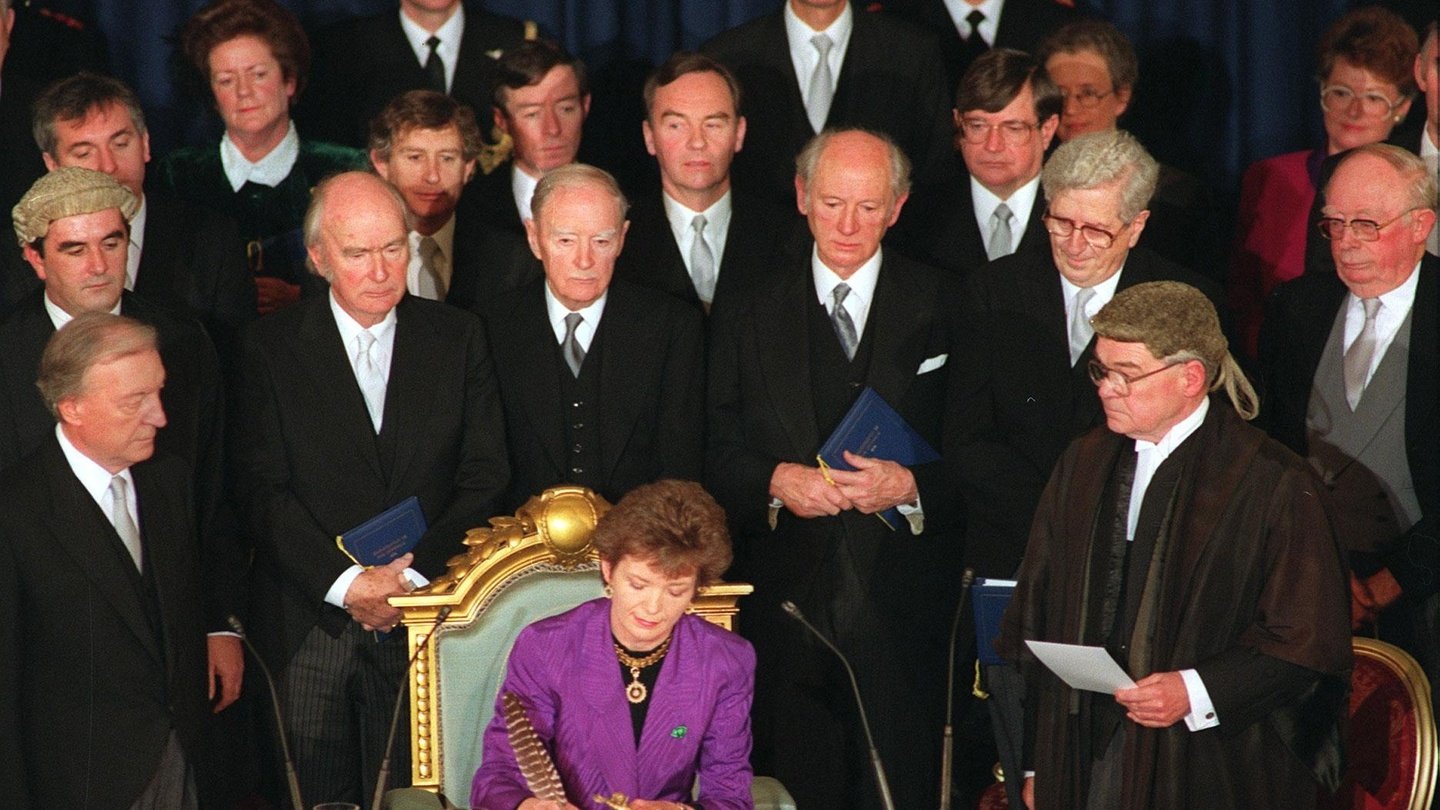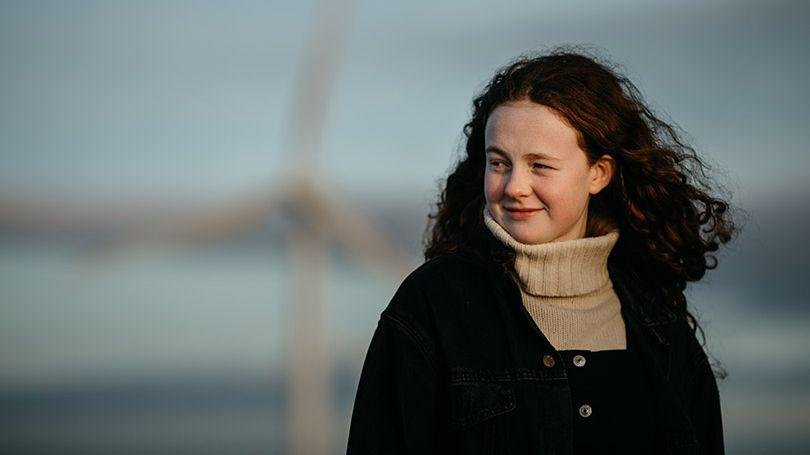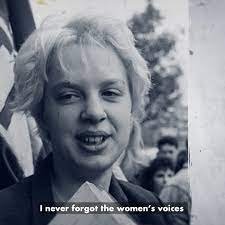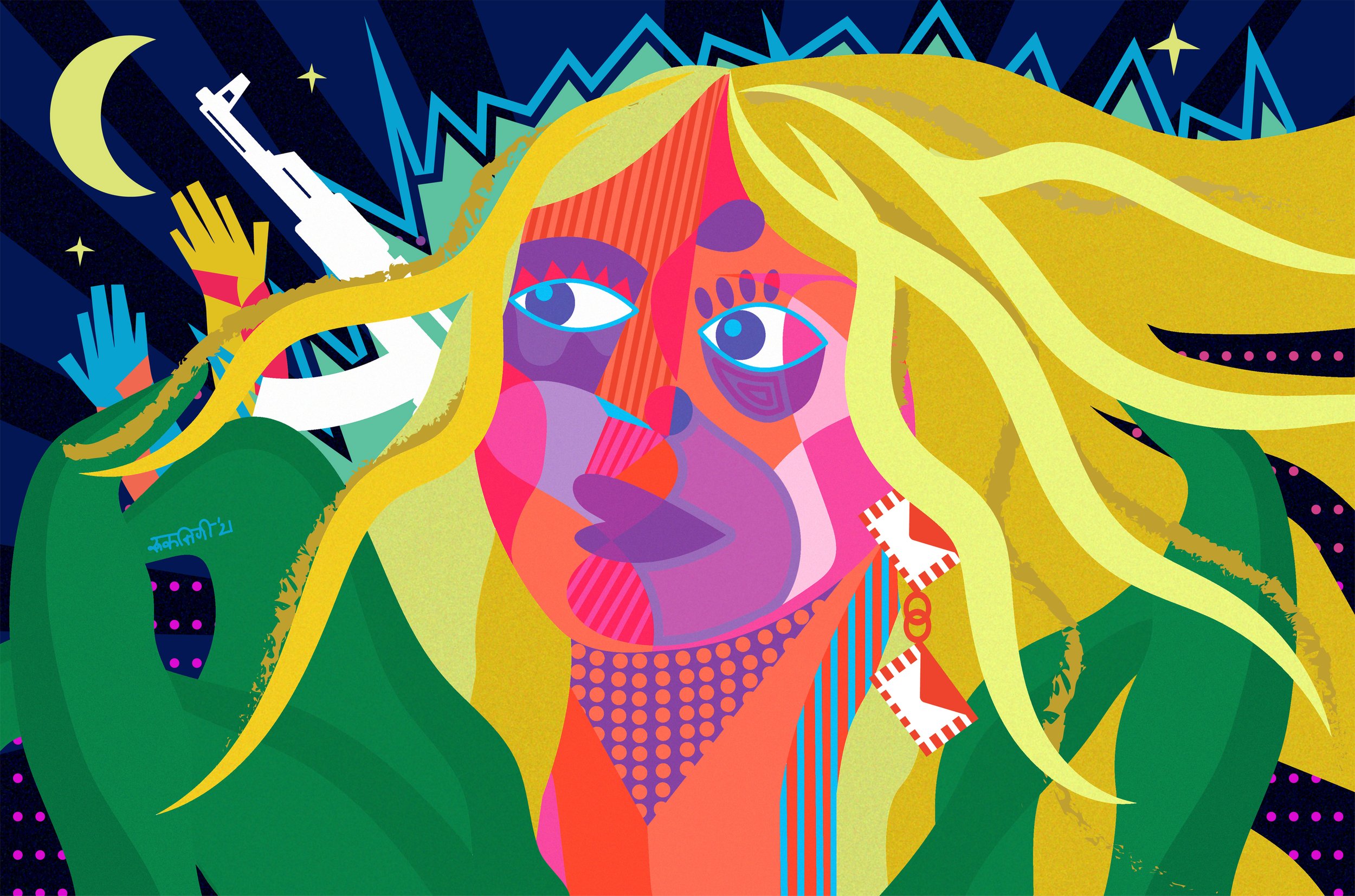HERSTORY SHINES A LIGHT
ON STUDENT POWER FOR BRIGID’S DAY
#Herstory #StudentVoices #Brigit2022
To celebrate Brigid’s Day 2022, Herstory and the Irish Second-Level Students’ Union present STUDENT POWER, a spectacular #Herstory Light Show to amplify #StudentVoices and spotlight the causes close to their hearts: climate action, girl’s education, mental health, racism, migrants rights, preserving indigenous cultures and more. Never before in history have young people risen up together on this scale across the world. Power to students as they lead the light.
Graphic design students from the National College of Art and Design and Colaiste Dhulaigh created new portraits of 30 young visionary change-makers which will be illuminated on Trinity College Dublin and The GPO on the 31st January, Brigid's Eve. The event is part of the #Brigit2022 Festival by the Lord Mayor of Dublin and Dublin City Council. It's free and open to the public. Check it out.
For now, continue down the page to read about the work that student activists around the globe have done and are continuing to do today to effect change in their communities and across the world.
“The Amazon’s like the vagina of the world because it’s where people come from. It’s like the entry door of the world. When this opening is sick, the future generations, they will be sick also”
Célia Nunes Correa, born in 1990 and better known as Célia Xakriabá, is an indigenous educator and activist of the Xakriabá people of Brazil. Xakriabá has been an activist for indigenous rights since she was 13 years old and is known best for giving lectures at universities in Brazil promoting the advancement of the status and rights of indigenous women, indigenous land rights, and indigenous education. She was also the first member of her tribe to receive a graduate degree.
“Apakah gunanya memaksa orang laki-laki menyimpan uang, apabila perempuan yang memegang rumah tangga tiada tahu akan harga uang itu!
[Roughly: ‘What’s the point of forcing men to save money, if the woman who runs the household doesn’t know the price of the money!’]”
Raden Adjeng Kartini, in full Lady Raden Adjeng Kartini (1879-1904), was a Javanese noblewoman whose letters made her a crucial symbol for the Indonesian independence movement and for Indonesian feminists. In her letters Kartini bore concern for the plight of Indonesians under conditions of colonial rule and for the confined roles open to Indonesian women. She resolved to make her own life a model for emancipation and in 1903 she pursued plans to open a school for Javanese girls. Sadly, she died aged just 25 due to complications in childbirth, however, the publication of her letters in 1911 led to the foundation of the Kartini Foundation which in turn opened the first girls’ school in Java in 1916, thus fulfilling Kartini’s dream.
Source: Britannica
“I decided to be a water defender after taking part in a ceremony in a village that had no access to clean, safe drinking water. I was struck by the fact that people my age didn’t even know what a drinking water tap was. I saw this as a profound injustice.”
Autumn Peltier (b. 2004) is an Anishinaabe Indigenous rights advocate from the Wiikwemkoong First Nation on Manitoulin Island, Ontario, Canada. Since the age of 8, Peltier has been advocating for the preservation of water for First Nations people in Canada. She’s spoken before the Canadian Prime Minister Justin Trudeau and the United Nation General Assembly on the realities of water pollution. Peltier was recently appointed chief water commissioner of the @anishinabeknation, a political advocacy group representing 40 member First Nations across Ontario.
“Right now, the Amazon, home to (a) million of my relatives, is burning. If it goes on like this, 20 years from now my house will become a desert and my people will be at risk of becoming history.”
Artemisa Barbosa Ribeiro (known as @artemisa_xakriaba) is a human rights activist from the Xakriabá community in Brazil whose work focuses on the Amazon jungle and environmental destruction. Xakriabá is a representative of the Global Alliance of Territorial Communities and was a speaker at the US Congress and the 2019 Climate Strike in New York City.
“We were born into an unjust system; we are not prepared to grow old in it.”
Bernadette Devlin (b. 1947, Tyrone) was a founding member of the college-based civil rights movement, People’s Democracy. Her election to Westminster in April 1969 in a byelection in the Mid-Ulster constituency was celebrated as a seismic political event in the burgeoning struggle for Catholic civil rights. Her victory, a week before her 22nd birthday, made her the then youngest-ever woman MP (a record only broken in 2015 by the Scottish National Party MP Mhairi Black, who was elected aged 20). If her success in the Mid-Ulster byelection upset the political hegemony of the Unionist Party, her maiden speech in the House of Commons five days later was a clarion call against the brutality, bigotry and discrimination the Catholic community was subjected to daily. It was described by some at the time as the finest maiden speech since Benjamin Disraeli’s in 1837 and it defied the convention that such speeches should not be controversial. She told parliament: “There is no place in society for us, the ordinary ‘peasants’ of Northern Ireland . . . because we are the have-nots and they are the haves . . . The situation with which we are faced in Northern Ireland is one in which I feel I can no longer say to the people, ‘Don’t worry. Westminster is looking after you.’
Source: Irish Times article. More info on RTÉ Archives
“I wanted the young African-American girls also on the bus to know that they had a right to be there, because they had paid their fare just like the white passengers.”
Claudette Colvin: The 15-year-old who came before Rosa Parks
‘In March 1955, nine months before Rosa Parks defied segregation laws by refusing to give up her seat to a white passenger on a bus in Montgomery, Alabama, 15-year-old Claudette Colvin did exactly the same thing. Eclipsed by Parks, her act of defiance was largely ignored for many years. She herself didn't talk about it much, but in 2018 she spoke to the BBC…’
See here for more.
“…What does my death matter if by our acts thousands are warned and alerted…”
Sophia Magdalena Scholl (1921-1943) was a German student and anti-Nazi political activist. She was eventually convicted of high treason after having been found dispensing anti-war leaflets at the University of Munich (LMU) with her brother, Hans. For her actions, she was executed by guillotine.
See here for more.
“When the whole world is silent, even one voice becomes powerful.”
As a young girl, Malala Yousafzai defied the Taliban in Pakistan and demanded that girls be allowed to receive an education. She was shot in the head by a Taliban gunman in 2012 but survived. Nine months after being shot, Yousafzai gave a speech at the United Nations on her 16th birthday in 2013. Yousafzai highlighted her focus on education and women's rights, urging world leaders to change their policies. In 2014, she became the youngest person to receive the Nobel Peace Prize.
See here for more.
“I have learned you are never too small to make a difference.”
Greta Thunberg became well-known after she protested outside the Swedish parliament in 2018, when she was 15. She held a sign saying, "School Strike for Climate", to pressure the government to meet carbon emissions targets. Her small campaign had a global effect, inspiring thousands of young people across the world to organise their own strikes. In 2019, Thunberg sailed across the Atlantic on a yacht to attend a UN climate conference in New York. Delivering what is probably her most famous speech, she angrily told world leaders they were not doing enough.
"You all come to us young people for hope. How dare you? You have stolen my dreams and my childhood with your empty words," she said.
See here for more.
“I was inspired to become an activist by realising my generation might not have a future planet to live on.”
Flossie Donnelly (born 2007) is an Irish marine environmentalist. A secondary school student, Donnelly was the first to bring seabins to Ireland, securing funds for two of the devices which remove plastic trash from bodies of water. Donnelly regularly engages in climate strikes either outside her school or the Dáil and organizes beach cleanups in Dún Laoghaire and Sandycove. She also started an environmental charity and action group called Flossie & the Beach Cleaners (@flossieandthebeachcleaners) when she was 11 to raise awareness about plastic pollution and its consequences for oceans and marine life.
See here for more.
The Coláiste Bríde nominee for the 2022 #Herstory Light Show is 5th year Yuliya Petruk. Yuliya is a truly inspirational young lady. She is highly motivated in her classes & her work is always of an exceptional standard. She works so hard in everything she puts her mind to. She is enthusiastic & shows a genuine interest in learning.
Aside from the academic side of things, more importantly is Yuliya's kindness & generosity of spirit. She is kind, caring, & inclusive & her friendships are important. Yuliya's positivity is infectious, & her beaming smile is never too hard to see when walking down the corridors of Coláiste Bríde. Yuliya is passionate about many things but where she really shone brightly is when she became involved in our Green Schools campaign for Climate Change awareness. Inspired of course by Greta Thunberg, Yuliya approached our principal about rallying the troops to march in Dublin's city centre to shine a light on the global issue of Climate Change. She gathered quite the troop of passionate followers. She came with solutions about how best to facilitate the marches among the various year groups which was very impressive.
Yuliya has spoken many times at Year Group assemblies where she has presented on many pertinent issues, her most impressive being on Empowering Women when she blew teachers & student away with a Powerpoint on St Brigid - the saint & the pagan Goddess. Yuliya does all her great work effortlessly & quietly without looking for anything in return. However, she has won the spirit award many times due the number of rewards and well-done cards she has received from all her teachers.
“While I’m glad my hard work and dedication came to fruition, many other refugees haven’t been embraced and afforded the opportunities I have.”
‘Just a few years ago Suaad Alshleh was a 14-year-old asylum seeker who had just arrived in Ireland with dreams of becoming a doctor. She & her parents had fled Syria in 2011 & relocated to the United Arab Emirates for a few years before seeking asylum in Ireland in 2016. They spent nine months in a Direct Provision centre in Monaghan waiting for their papers, after which they moved to Laois. In 2019, she was named as the first recipient of a new State scholarship for disadvantaged students studying science in higher education.
European Commission president Ursula von der Leyen delivering her maiden state of the union speech mentioned Alshleh when she spoke of the need to harness the skills, energy and talent of refugees in building a future for the EU. “I think of Suaad, the teenage Syrian refugee who arrived in Europe dreaming of being a doctor,” von der Leyen said. “Within three years she was awarded a prestigious scholarship from the Royal College of Surgeons in Ireland. ”
See here for more.
“The Ireland I grew up in is different from the Ireland of today. We are now awake, and I hope we continue to be, so we cherish who we now are and who we might become.”
Ola Majekodunmi (@ola.majekodunmi) was born in Lagos, Nigeria and raised in Dublin, Ireland. She is an Irish language broadcaster, Gaelgeoir, filmmaker, co-founder of Beyond Representation and Board of Directors member on both Foras na Gaeilge & Mother Tongues Ireland.
In 2018, Ola directed and produced the viral video- ‘What Does “Irishness” Look Like?’ which was screened at the Belfast Feminist Festival, Belfast Film Festival and Rathmullan Film Festival.
In 2019, she co-founded an initiative with her cousin and friend to create a platform to celebrate women of colour’s achievements in Arts, Media, and Business.
See here for more.
In 2021 the National Women’s Council of Ireland appointed Amina Moustafa to the All-Island Women’s Forum. Using sport as a non-formal learning tool to tackle numerous social issues such as racism, discrimination, and gender inequality, she has worked with various organisations on a local, national, and international level such as Swim Ireland, the GAA and FIFA Foundation to emphasis the need for cultural and religious considerations in the design of community development programmes. She is a Board Member of Sport Against Racism Ireland and has previously been the Project Coordinator of their Hijabs and Hat-Tricks programme encouraging Muslim women to play football after the lifting of FIFA's hijab ban in 2014.
Born in Kenya in 1980, Sveva Gallmann’s passion for nature and culture was instilled early on. When she was just four years old, her mother, Kuki Gallmann (best-selling author of I Dreamed of Africa), founded the Gallman Memorial Foundation as a tribute to her late husband and son. The estate is dedicated solely to conservation and acts as a natural temple for various wildlife.
One of Sveva’s biggest accomplishments to date has been the formation of the “4 Generations Project.” Over the years, Sveva became more and more aware of the dwindling connection between African youth and their customs. She developed this project, which has since become part of the Kenyan school curriculum and been adapted around the world, as a way to curtail the gradual loss of traditional tribal knowledge and also encourage a reconnection with the natural environment. In partnership with the Gallmann Memorial Foundation, “4 Generations” brings together local kids from main tribes in Kenya - Kikuyu, Turkana, Samburu, Nandi, Kalenjin - and inspires them to actively seek out and share the wisdom of their elders.
See here for more.
Plorentina Dessy Elma Thyana or Dessy, was born in Balai Semandang village, 10 December 1996. Since she was a kid, Dessy has gone to the forest with her parents to gather food, traditional medicine and attend rituals. Her love of her culture, tradition, and local wisdom brought her, with her family, to establish Yayasa Arus Kualan (the customary School Arus Kualan), a place dedicated to preserving the traditional knowledge and values of her culture. It also works to connect the new generation with the elders to learn about the Dayak traditional knowledge, traditional music, games, food, medicine, rituals, local wisdom, language, traditional story, and carving. Furthermore, Yayasan Arus Kualan also facilitates literacy classes for children and encourages the Dayak youth to make a documentary film in which they record a story from their elders and community. Dessy has established 5 Sakolah Adat in 5 different places with a total 149 students. Her dream is to build a school building in the forest and involve as many people as possible, especially the Dayak people, to encourage them to join and continue the Dayak identity.
“…had it not been for women we would not have seen any references to integrated education, to integrated communities, to the advancement of women in political and public life, and particularly the issue in relation to supporting victims. That is the legacy of the Women’s Coalition….”
Bronagh Hinds (born 1951) founded DemocraShe in 2000 to empower women in politics, policy influence and peace-building. She is involved in Women in Local Councils, the Women’s Policy Group, and the Women’s Budget Group. She participated in the 1996-98 Good Friday Agreement negotiations for the Women’s Coalition and was the Deputy Chief Commissioner of the Equality Commission for N. Ireland 1999-2003. She was a Senior Practitioner Fellow at Queen’s University Institute of Governance for six years following twenty years in the voluntary sector as director of Gingerbread NI, regional director of Oxfam and director of the Ulster People’s College. Active in the Northern Ireland Women’s Rights Movement in the 1970s, she was the founder and chair of the Northern Ireland Women’s European Platform 1988-1998. She served as a Commissioner on the Northern Ireland Local Government Staff Commission 2005-2010 and the final Northern Ireland Commissioner on the UK Women’s National Commission 2007-2010.
See here fore source.
“I think racism in Northern Ireland is more of a problem than people would like to admit, completely, whenever the protests started I noticed a lot of ignorance.”
As a child growing up outside Belfast, Angel Arutura (@angelarutura )was “always fascinated by the world around us and people and the planet.” During lockdown the 20-year-old geography student used social media to join the dots between racial justice and climate justice. Climate activists “are talking about climate justice as rising sea levels and plastic pollution. But what they’re not talking about is how it’s affecting people.” Black Lives Matter and environmentalism are “incredibly interlinked,” she says, “because people that are least contributing to the climate crisis are suffering most from it.” She’s fascinated by the need to “unlearn and relearn” ideas about climate justice in the same way that feminism had to widen out its focus from middle class white women. Climate leaders “need to pass the mic, to give it to the people whose voices need to be heard,” primarily those with first-hand accounts, Arutura says. And the Covid effect? “I’m hopeful that eventually we’ll be in a place where everyone can treat people on the planet with much more kindness.”
Source: 50 people to watch in 2021: The best young talent in Ireland, Irish Times
“Minahil & I have known each other since we were 11. We clicked immediately because, at the time, she was the only person who I could speak to about life in Direct Provision & the constant fear of deportation.”
“…the truth is that strength is not about pretending to be okay: it’s about accepting you’re not okay and picking yourself up.”
Natasha Maimba and Minahil Sarfraz met whilst growing up as asylum seekers in Direct Provision, their childhoods spent in cramped caravans on the outskirts of Athlone. Many years have been defined by uncertainty and struggle, as they attempted to build homes in a country where their mothers were denied basic citizenship rights. Both are powerful advocates for issues facing asylum seekers and through their work for UNICEF Ireland they have already reached mass audiences around the world.
Source: RTÉ
“The best things in life are not easy but they are worth it. I have left college a new person ready to #riseup. Mental health is such an important discussion and the lack of services available is disheartening. We need more research, services, and education brought into this area.”
Jessica McMahon studied business management and anthropology at Maynooth University and during her time there, volunteered with @text50808 crisis helpline and @turn2me.ie a nonprofit for professional mental health support. She has been an ambassador for @mu_futureready, a training development coordinator in the Maynooth Access Program, president of the mental health society, and a Co-Captain for the Movember society in 2020.
Source: STAND
Florentini Deliana Winki or Deli was born in Balai Smandang, Borneo, Indonesia, in 2001. Deli is a multi-talented Dayak artist currently studying tourism at university Jakarta, Indonesia. She is the third child of four siblings. Together with her sister Dessy she started Arus Kualan, the non-formal-education customary school for the indigneous Dayak people in 2014 when she was only 13 years old. Deli has a passion for the children, her culture and tradition. She plays the sapé, the traditional Dayak instrument call. She also loves to dance and sing. At Arus Kualan, Deli teaches the students to write songs, play the sapé and dance to the music.
Deli is a big hit on social media: on Instagram she has 12K followers and on Youtube she has 10K subscribers. She uses these mediums to introduce her culture and tradition to the world. She never expected that so many people would love what she does, especially the young people. As a Dayak Youth Ambassador, she was invited to speak at events and encourage young people to be changemakers. As an activist and educator, she also shares powerful messages through her music and songs. The songs that she wrote by herself are “Oh Inok (oh Mother), “TORUN (Forest)”, “kramat (Secret Place), “Makaseh keluarga (Thank You Family).
“I was elected by the women of Ireland, who instead of rocking the cradle, rocked the system.”
When she finished school, Mary Robinson (b 1944) wanted to be a nun. After taking a year out, however, she began to ‘see from a distance so many things I’d resented for so long but didn’t voice.’ The inequality around her was too much, and so, she headed to Trinity to study law. As an auditor of Trinity’s Law Soc she decided to debate on the theme of law and morality in Ireland – which she was strongly advised against doing. She argued for the ‘legislation of family planning, removal of the ban on divorce [and] the decriminalisation of homosexuality and suicide.’
After studying in Harvard, she became ‘not only radical, but impatient’ and so she stood for the Seanad aged 25 where she tried to legalise family planning (contraception). ‘It was the only bill in the history of the Oireachtas that was never given a first reading. One member of Fianna Fáil wore gloves so as not to contaminate his hands with holding such filth on the order paper.’
Eventually, Mary became an Irish independent politician who then served as the 7th president of Ireland from 1990 to 1997, becoming the first woman president of Ireland. She also served as UN High Commissioner for Human Rights from 1997 to 2002 and as a local councillor on Dublin Corporation from 1979 to 1983.
Source: Trinity Today
The Raphaela’s Secondary School nominee for the 2022 #Herstory Light Show is Jessica Dunne.
She first got involved in activism through the climate crisis. In late 2018, Jessica was involved in many ‘beach clean ups’ in Bray, Co. Wicklow. During these ventures she was shocked and appalled by the amount of rubbish, particularly plastic, that she found on the beach. She used this as her design inspiration for her entry into the Junk Kouture fashion competition. This is a fashion competition based around ‘recycling’. It encourages students to be creative and design garments made from recycled materials. Jessica chose the theme of ‘The Sea’ to reflect her design. She created a futuristic mermaid design, with a statement '2050' headpiece, to attract attention to the issues around pollution in our oceans. It emphasised the idea that by 2050, there will be more plastics in the ocean than fish.
This led Jessica to further becoming involved in general activism, as she realised the connectivity between all social injustices. She is a member of ‘Fridays For Future’, working at a local, national, and international level. She was the Dún Laoghaire-Rathdown regional officer for the Irish Second Level Students Union, from 2019 to 2021. She is a TEDx speaker and mentor. She delivered a talk stressing the importance of intersectionality in 2020.
As well as her work in organisations, she is a songwriter and poet, channelling her frustrations with injustices into her work. She performs songs or poems at the majority of the climate strikes in Dublin, believing that: “Music is what unites us in times of hardship."
Florentin Sry Dewi Wulandari was born in Tahak in 1999. The 2nd child of four siblings from the Dayak Simpankng tribe family, Ketapang regency, West Kalimantan, Borneo Island, Indonesia. People call her Dewi, and her special local name is “Ragak'' which means the weaving basket from the rattan. She is strong and can weave, carrying everything in her life.
In 2021, she graduated cum laude with a History degree from IKIP Pontianak University. Dewi is a writer, and she uses her skill in writing to raise awareness of the stories, knowledge and wisdom of her culture and the Dayak people. She captures the complete story through researching, interviewing, and recording the stories of people who deserve to be heard.
Dewi has contributed to academic journals, writing papers for the following topics: “Barus port as an economic booster”, “SRIWIJAYA PEOPLE”, “THE EXISTENCE OF THE MILLENNIAL DAYAK GENERATION IN THE EFFORT OF FOREST CONSERVATION IN KETAPANG REGENCY”, “THE ROLE OF “SENG HIE” WORLD HISTORICAL SITES FOR PONTIANAK PEOPLE”, “THE ORAL TRADITION OF THE DAYAK SIMPAKNG COMMUNITY IN MANAGING THE PANDEMIC”.
Dewi’s degree thesis entitled “THE WOMEN’S ROLE IN PRESERVING THE DAYAK SIMPANK CULTURE AND TRADITION” received a commendation from her lecturer - she is the first person to record in writing the stories of Dayak women. Now she is helping her sister Dessy to teach at Arus Kualan, the non-formal education customary school. Dewi encourages the Dayak youth to write and record the stories of their people.
“Unity is the key to overcoming the climate crisis because people power is the only way. We have to put aside our individual differences and band together to send a message to the ones in power that enough is enough, and we want change.”
In Limerick, Saoirse Exton first became aware of the severity of the climate crisis when she was 14 and heard about the thousands of Australian students who went on strike on 30 November 2018. By researching what was going on, Exton came across Greta Thunberg and like many, was inspired into action. ‘Sick of the negligent government and the dying planet’ she reached out to Fridays For Future Ireland and was told that there was no local group in Limerick, but this didn’t stop her. After considering where would be best to draw attention to her protests, she made some posters, started up some social media accounts and from there, the Fridays For Future Limerick group was born.
Since then, Exton has not stopped working. In May 2020, she was elected as Equality Officer of the @issu4u, where she began work on various projects, such as writing ISSU's first Accessibility Guidelines, and creating the role of Disability Officer. In January 2021, she finished up her year with the Climate Ambassador Program and was awarded an Outstanding Achievement Award for her year of action. She also finished up her term as Public Relations Officer with Comhairle na nÓg. In March, she became a Youth Advisory Group member for the Environmental Protection Agency, where she contributed to the Youth Engagement Strategy and presented the report's findings to the Senior Leadership Team. In May, she became a member of the National Youth Council Ireland's Young People's Committee, in June she became a member of Friends of the Earth's System Reset team, and in July, she became a member of the European Youth Parliament.
Read more about her work here.
“The IWWU (Industrial Workers of the World) has been accused of pushing women to the front. This is not true. Rather, the women have not been kept in the back, and so they have naturally moved to the front.”
Elizabeth Gurley Flynn (1890-1964) was a labour leader, activist, and feminist who played a leading role in the Industrial Workers of the World (IWW). When she was only 15, she gave her first public speech, "What Socialism Will Do for Women." She was a founding member of the American Civil Liberties Union and a visible proponent of women's rights, birth control, and women's suffrage. She joined the Communist Party USA in 1936 and late in life, in 1961, became its chairwoman.
See here for more.
While studying Law in Trinity College Dublin, Ivana Bacik gained prominence for her politics, especially her campaigning for reproductive rights. During her time in Trinity, she was taken to court by The Society for the Protection of the Unborn Child (SPUC) and threatened with jail time for providing information on abortion. In an article she wrote for International Planned parenthood federation, she said it was soon-to-be Irish President Mary Robinson that prevented her and her students' union colleagues from ending up in prison. "She made a series of very important arguments based on European law and our case was sent to the European Court of Justice in Luxembourg," Bacik wrote. SPUC were eventually successful in their case, but it came many years after Bacik had graduated from Trinity.
Bacik is now a lawyer and has taught law over many years in Trinity College Dublin. She was first elected to serve in Seanad Éireann in 2007, and, as an experienced legislator, has seen more of her opposition bills become law than any other senator. Bacik’s reforming legislation has tackled issues such as working conditions for freelancers, secular marriage, women’s health rights and LGBT equality. A long-term campaigner for constitutional change, she was a leading national and local voice in the Marriage Equality and Repeal the 8th campaigns.
Source: RTE
By Anna Abola
Kya Xe Dudney is a youth climate activist and a third-generation immigrant of Mayan descent. She most recently spoke at The Flourishing Diversity Summit that took place in London during September of 2019. She is a recent graduate from the University of Idaho with a Bachelor of Arts in International Studies and Spanish, in addition to receiving an Academic Certificate in Global Climate Change. Throughout college, Kya focused her studies and research on climate change and different topics focused on inequality. She participated in many philanthropic events as well as attended various conferences and summits. She currently serves as an Ambassador and President of The Path, a non-profit founded by Grandmother Flordemayo that works to preserve and protect sacred heirloom seeds for the future generations.
“There is no worthier applicant for a [Military] Pension in county Donegal.”
N.B. This story is from a different era of Irish history during the struggle for Independence. It refers to the Old IRA, not the terrorist organisation from The Troubles. Herstory condemns violence and war however we felt it important to include this story as it details the extraordinary courage of a young girl.
Mary Kane by Corinne Richards Scully
One of the youngest - if not THE youngest - member of Cumann na mBan was Donegal girl Mary Kane who was just 10 years old when she joined with her mother in 1917. One of Mary’s earliest memories of her involvement in the campaign for Ireland’s independence was being attacked at Finner Camp by British forces after she and her parents had come from a republican meeting in Bundoran. Their home in East Port quickly became the dumping place for the Company arms and by 12, Mary was often tasked with carrying guns and ammunition from her home, past the Barracks, to the outskirts of town.
Mary and her mother were continuously attending parades, demonstrations and training days with their fellow Cumann na mBan comrades, as well as raising funds and further equipping Cumann na mBan by crafting First Aid equipment. Not only did they hide guns in their home, but they also opened it to any IRA man who needed a place to stay, or who was passing through the district and needed food.
Mary Kane by Rukmini Kelkar
For several months toward the end of 1920 and into 1921, three IRA men were hiding out in a hay loft near her home. They had previously been given 24 hours to leave the country, or risk being ‘shot on sight.’ Almost every night, for several months, Mary waded across the Erne river in order to bring food to these men. On one occasion, while engaged in this errand, she was shot at by Black and Tans. The bullet splintered a brick and the flying fragments hit Mary in the face, causing serious damage to her eye, but still, she managed to successfully reach the boys to give them their food and various messages that night.
Read more here.
By Kate Healy
Northern Irish Artist Rebecca Lively created a powerful new mural for Herstory named ‘The First Supper’ with portraits and parallel life stories of peace and community activists from Northern Ireland, Palestine, and Israel - including the voices of women and youth who are often missing from the table at peace-building talks. There’s one place left at the table posing the question; “Who’s voice needs to be heard?” Rebecca’s art has been so important to Herstory, allowing us to get our message of peace and community activism across to our audience, hence why Herstory is honouring her - the artist - as part of this particular Light Show.
By Ernastas Bartninkas
Xiye Bastida (@xiyebeara) (b 2002) is a Mexican-Chilean climate activist and member of the indigenous Mexican Otomi-Toltec nation. She is one of the major organizers of Fridays for Future New York City and has been a leading voice for indigenous and immigrant visibility in climate activism. She is on the administration committee of the People's Climate Movement and a former member of Sunrise Movement and Extinction Rebellion. She is co-founder of Re-Earth Initiative, an international not-for-profit organization that is inclusive and intersectional “just as the climate movement should be.”
